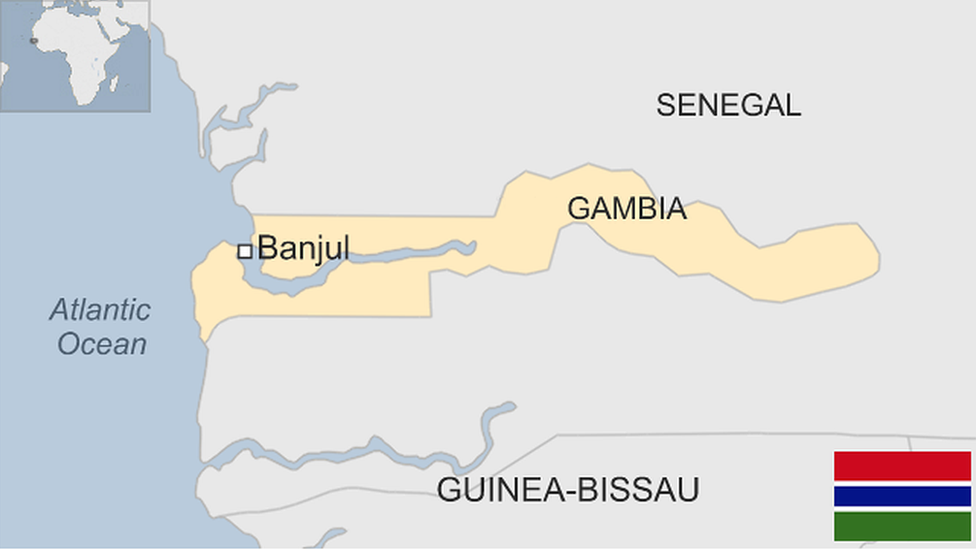Letter from Africa: The art of drawing your address in The Gambia
- Published
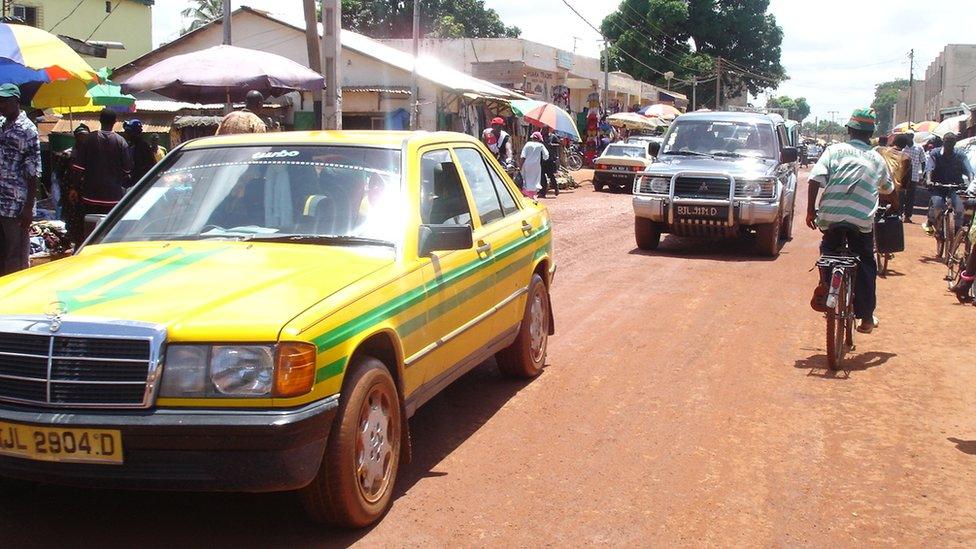
In our series of letters from African journalists, Sierra Leonean-Gambian writer Ade Daramy explains why it is easy to get lost in The Gambia.
"Turn right at the red shipping container, opposite the school on the highway, you'll see two roads, take the one to the right and then left at the unpainted corner shop at the second junction..."
This is part of what passes for giving directions to an address in many parts of The Gambia.
Once you leave the capital, Banjul, and head into the surrounding cities, you find yourself struggling to find anything more than a few named streets.
When I went online to look at maps of the country, the full horror of the situation dawned on me: there are hundreds, possibly thousands, of nameless streets.
I have often wondered whether Irish rock band U2 were actually thinking of The Gambia when they wrote their hit Where the Streets Have No Name.
'Note the landmarks'
The exception is Banjul, where roads with names like Clarkson, Wellington, Anglesea, Lancaster, Peel and Haddington retain the legacy of the British colonial era, when this neat little city was called Bathurst.
More recent-ish ones in Banjul bear names such as Nelson Mandela Street, OAU Avenue and Ecowas Street.
But most Gambians, some in their dotage, have never lived in a street with a name or a house with a number.
Sierra Leoneans, by comparison, revel in recounting street names and the country even has a tradition of streets competing in football games against each other"
And yet everywhere you go and are asked to fill in a form, which happens a lot, there is a box marked "address".
After having negotiated this at several places, I went to open a bank account and joked with the account manager: "Why bother with asking people's addresses, if they live in unnumbered houses in unnamed streets?"
I certainly was not prepared for the answer, delivered with a casualness bordering just this side of nonchalance: "The box is big enough for you to draw where your house is, in relation to the nearest landmarks."
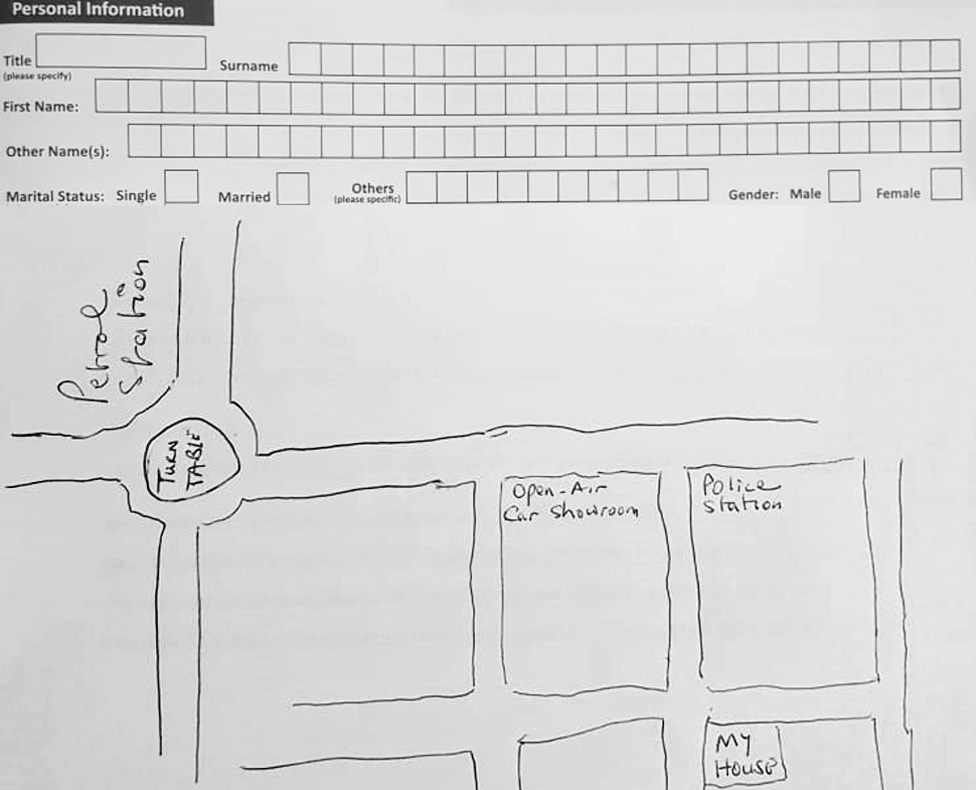
People often have to draw their addresses on forms in The Gambia

So it was that I put my especially poor drawing skills to giving a vague representation of my abode in relation to the local petrol station and police station.
Though when I went back recently to the bank, the manager almost had the last laugh, saying the forms had been redesigned - no longer was there the big box to test one's drawing skills, but there is still an "address" box, followed by "nearest bus stop/landmark".
'I give up explaining'
As I recently walked along one of Gambia's long main thoroughfares - Kairaba Avenue, a name taken from the middle name of independence leader President Dawada Kairaba Jawara - I thought I'd make an enquiry in one of about 30 or so side streets that lead off it.
On a properly paved street, I asked the Lebanese owner, who said his mini-supermarket had been there for many years: "Can you tell me the name of this street, please? I want to tell someone to come and meet me here later."
"Err, I don't know about a name - just tell them: 'The street opposite Pipeline Mosque, off Kairaba Avenue.'"
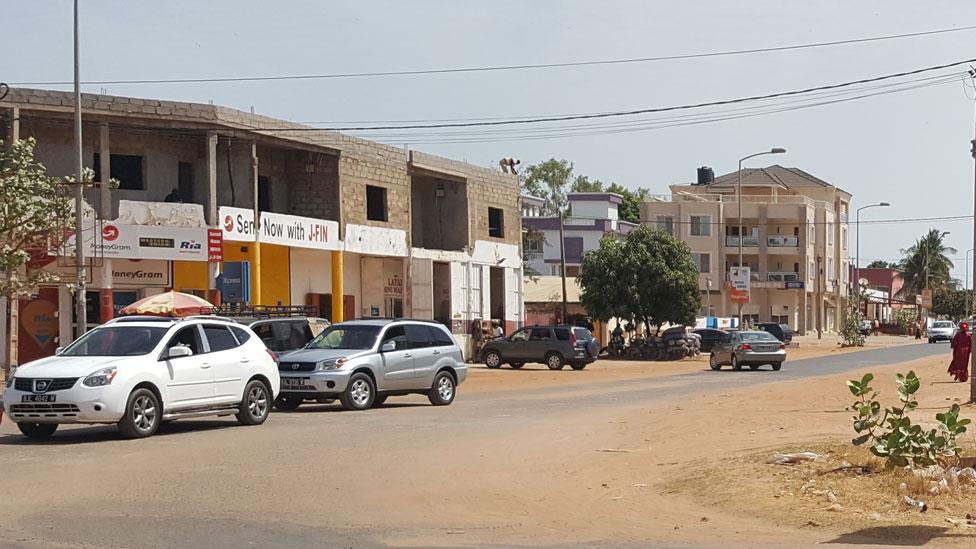
This is the street opposite Pipeline Mosque, off Kairaba Avenue
So for people fielding 10 phone calls in a day from those wanting to pay a visit, they could spend a large part of that day giving directions.
And yet, when I mention this to folks who have lived here for a while or for all their lives (and don't mind losing the odd hour or two a day giving directions), they act as if it is the most normal thing in the world.
I frequently give up explaining and say: "Meet me at the turntable" - as roundabouts are called here - or the "traffic light" and proceed to meet the person at one of these obvious landmarks, saving us both lots of time.
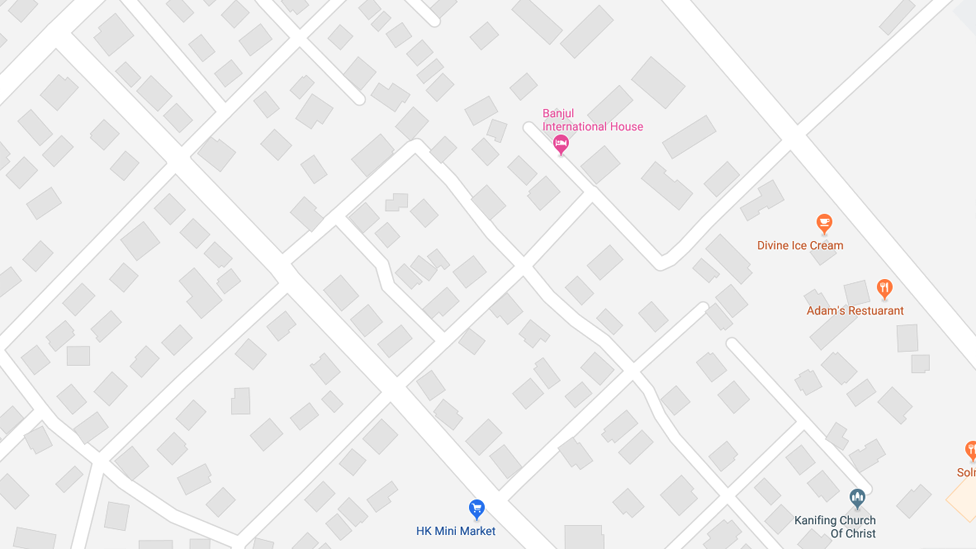
Even if you zoom in on Google Maps, streets have no names off Kairaba Avenue
Am I missing something? Is there a local custom or superstition about naming streets? If so, it must be a recent phenomenon; after all, those old streets in Banjul pretty much all have names.
Parcel-delivery problems?
Or is it just that successive governments, including the rapidly unravelling current coalition, have always had better things to do than attend to this "small" matter?
Other former colonies in the region - English and Portuguese - have street names. Sierra Leoneans, by comparison, revel in recounting street names and the country even has a tradition of streets competing in football games against each other. Hard to "announce" a winner if there is no street name.

More on The Gambia:

I have been coming regularly to The Gambia since 1997 and I have yet to hear anything approaching an answer to this conundrum. Even a ridiculous one would suffice.
If they addressed this, think of the number of jobs that could be created: postal workers would have addresses to deliver to - so more parcels might be sent, those selling house numbers might suddenly have a market to cater to.
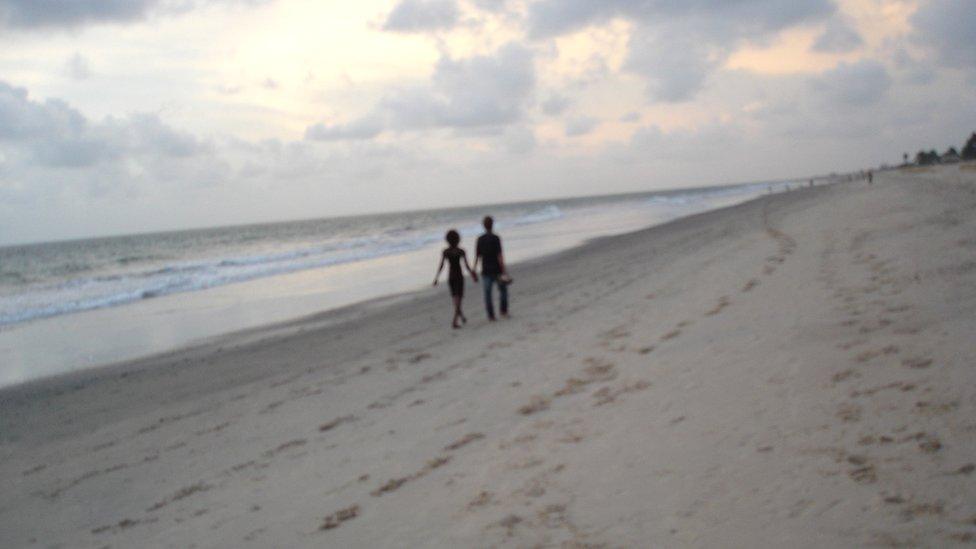
Many tourists come to The Gambia for its Atlantic coast beaches
On my way home from work earlier this month, I drove by the local office of a well-known, international delivery company and was tempted to go in and ask how they coped.
Curiosity got the better of me and I called DHL. Of course, I should have guessed: the sender provides the full name and telephone number of the recipient - once the package arrives, arrangements are made between the recipient and the company about where to take or collect the parcel.
Yours, baffled and increasingly exasperated, of somewhere near a petrol station, opposite the hardware shop, just a few feet past the abandoned container, on the highway leading to the airport, Old Yundum, The Gambia.

More Letters from Africa
Follow us on Twitter @BBCAfrica, external, on Facebook at BBC Africa, external or on Instagram at bbcafrica, external

- Published12 April 2023
